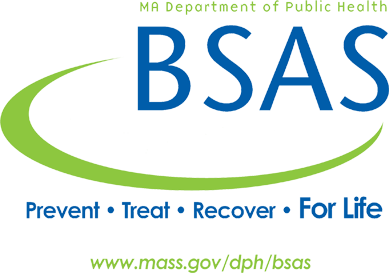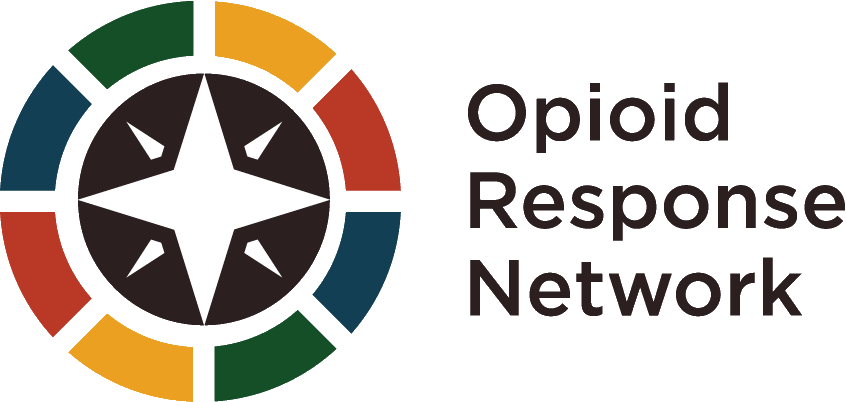Contact:
Grayken Center for Addiction TTA
info@addictiontraining.org
+ Show events
Past events
Building Recovery Capital
 Tuesday, 9/3/24, 2:00 PM – 3:00 PM ET
Tuesday, 9/3/24, 2:00 PM – 3:00 PM ET
 Virtual event via Zoom
Virtual event via Zoom
 Credits available
Credits available
This training will focus on defining recovery capital and how individuals can support those working to build it. Unique activities that may augment recovery support, including mindfulness, self-care, art and exercise support, will be reviewed. We will also explore recovery capital building strategies that care providers can use to engage with community partners.
Show details
Virtual meeting
Via Zoom
Description
This training will focus on defining recovery capital and how individuals can support those working to build it. Unique activities that may augment recovery support, including mindfulness, self-care, art and exercise support, will be reviewed. We will also explore recovery capital building strategies that care providers can use to engage with community partners.
Intended audience
Clinical staff, non-clinicians, and members of the community.
Speakers
Dina Gonsalves PerezDina Gonsalves Perez is the Member Relations Specialist at The Phoenix, providing outreach and peer support services for present and future team members. In addition to being in recovery for seven years, Dina's lived experience with addiction and incarceration allow her to empathize with those navigating their substance use disorders and related social experiences. Dina empowers folks in recovery, creating safe and positive environments for them.
Danielle O'Brien, B.S., LADC, CARCDanielle O'Brien is the Director of Recovery Services at the Department of Public Health, Bureau of Substance Addiction. She brings over 10 years experience working in substance addiction services, building out and supervising new community-based recovery support programs in Boston years ago,
and now throughout the state, using her own lens of lived experience and inspiration from the unique journies of peers. Danielle supports the expanding DPH Recovery Support Services, including 39 Peer Recovery Support Centers, Peer Workforce and Recovery Coach training through the Recovery Education Collaborative and Statewide Education, Advocacy and Capacity Building supported by the Massachusetts Organization of Addiction Recovery and cross system strategy, education and collaborative projects to build Recovery-oriented Systems of Care that ensure accessible, person-centered, community based recovery support for all. Danielle holds a Bachelor of Science from Suffolk University, and is a Licensed Alcohol and Drug Counselor, Certified Addiction Recovery Coach and national speaker on Recovery Support Services.
Objectives
- Define the term recovery capital.
- Name at least 2 activities that may contribute to the augmentation of recovery capital.
- Develop strategies for engagement with community partners to build recovery networks
Sponsored by
Boston Medical Center Grayken Center for Addiction TTA, Massachusetts Department of Public Health, Bureau of Substance Addiction Services (DPH/BSAS)
Funding for out of state attendees is provided by the Opioid Response Network (ORN).
Funding for this initiative was made possible (in part) by grant no. 1H79TI085588-02 from SAMHSA. The views expressed in written conference materials or publications and by speakers and moderators do not necessarily reflect the official policies of the Department of Health and Human Services; nor does mention of trade names, commercial practices, or organizations imply endorsement by the U.S. Government.
Accreditation information
REQUIREMENTS for credit
- Register for training.
- Arrive/log into the training no more than 10 minutes after designated start time for program.
- Identify yourself by typing your full name into the chat and ensuring your zoom name matches that used to register for training (or you cannot be marked on attendance).
- Be present through the end of the activity (i.e. until the designated end time of training).
- Complete evaluation within 2 weeks of program completion.
Please note this policy is strictly enforced for accreditation purposes. Participants will forfeit collection of credit and certificates of completion if more than 10 minutes of the training is missed.
Joint Accreditation Statement for CME, Nursing and Social Work
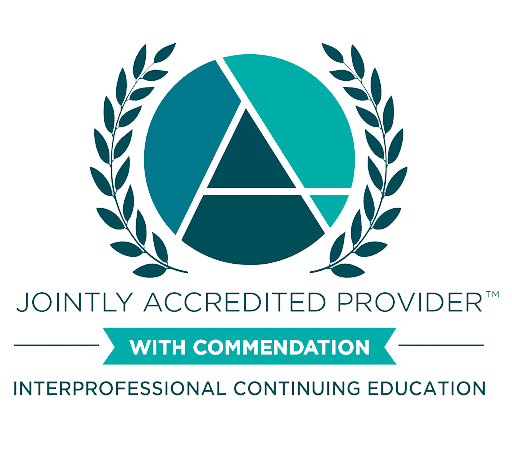 In support of improving patient care, Boston University Chobanian & Avedisian School of Medicine is jointly accredited by the Accreditation Council for Continuing Medical Education (ACCME), the Accreditation Council for Pharmacy Education (ACPE), and the American Nurses Credentialing Center (ANCC), to provide continuing education for the healthcare team.
In support of improving patient care, Boston University Chobanian & Avedisian School of Medicine is jointly accredited by the Accreditation Council for Continuing Medical Education (ACCME), the Accreditation Council for Pharmacy Education (ACPE), and the American Nurses Credentialing Center (ANCC), to provide continuing education for the healthcare team.
CME
Boston University Chobanian & Avedisian School of Medicine designates this live activity for a maximum of 1.00 AMA PRA Category 1 Credit(s)™. Physicians should claim only the credit commensurate with the extent of their participation in the activity.
Nursing
Nursing Contact Hours: 1.00 number of contact hours of which 0.00 are eligible for pharmacology credit.
Social Work
As a Jointly Accredited Organization, Boston University Chobanian & Avedisian School of Medicine is approved to offer social work continuing education by the Association of Social Work Boards (ASWB) Approved Continuing Education (ACE) program. Organizations, not individual courses, are approved under this program. Regulatory boards are the final authority on courses accepted for continuing education credit. Social workers completing this course receive 1.00 general continuing education credits.
American Psychological Association (APA) CE Designation Statement:
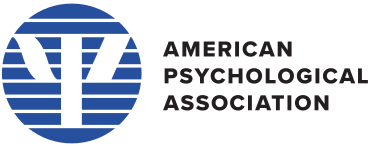 Continuing Education (CE) credits for psychologists are provided through the co-sponsorship of the American Psychological Association (APA) Office of Continuing Education in Psychology (CEP). The APA CEP Office maintains responsibility for the content of the programs.
Continuing Education (CE) credits for psychologists are provided through the co-sponsorship of the American Psychological Association (APA) Office of Continuing Education in Psychology (CEP). The APA CEP Office maintains responsibility for the content of the programs.
New York State Psychology Credit:
Boston University Chobanian & Avedisian School of Medicine Barry M. Manuel Center for Continuing Education is recognized by the New York State Education Department’s State Board for Psychology as an approved provider of continuing education for licensed psychologists #PSY-0181 Note: NYS psychologists must attend all sessions for credit. Partial credit is not allowed.
The Department’s approval of a provider of continuing education does not constitute the Department’s endorsement of the content, positions or practices that may be addressed in any specific continuing education course offered by the approved provider.
LMHC
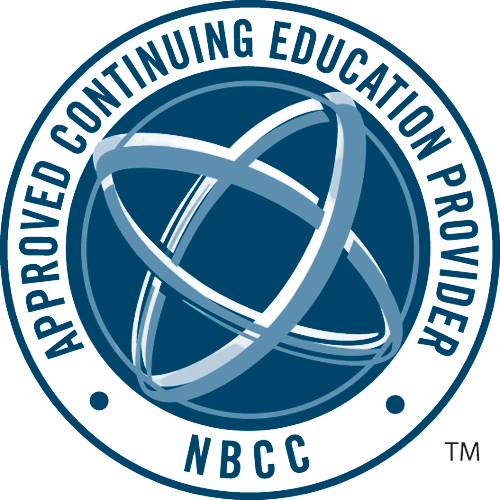 BMC Grayken Center of Addiction TTA has been approved by NBCC as an Approved Continuing Education Provider, ACEP No. 7188. Programs that do not qualify for NBCC credit are clearly identified. BMC Grayken Center of Addiction TTA is solely responsible for all aspects of the programs. For this program, 1.00 contact hours will be offered to participants who attend the training and complete the evaluation.
BMC Grayken Center of Addiction TTA has been approved by NBCC as an Approved Continuing Education Provider, ACEP No. 7188. Programs that do not qualify for NBCC credit are clearly identified. BMC Grayken Center of Addiction TTA is solely responsible for all aspects of the programs. For this program, 1.00 contact hours will be offered to participants who attend the training and complete the evaluation.
LADC/CADC & Recovery Coach
Boston Medical Center Grayken Center for Addiction Training and Technical Assistance is approved by the Massachusetts Department of Public Health, Bureau of Substance Addiction Services (DPH/BSAS) to award LADC/CADC and Recovery Coaches who complete this trainings 1.00 continuing education credits.
Community Health Worker
Boston Medical Center Grayken Center for Addiction Training and Technical Assistance is approved by the Massachusetts Department of Public Health, Board of Community Health Workers to award community health workers who complete this training 1.00 continuing education credits.
Disclaimer
Continuing education (CE) requirements vary by license and jurisdiction. When requesting continuing education credits, please ensure you are following the rules and regulations determined by the board regulating your license. Boston Medical Center Grayken Center for Addiction TTA does not oversee adherence to licensing requirements and regulations.
THIS CONTINUING EDUCATION PROGRAM IS INTENDED SOLELY FOR EDUCATIONAL PURPOSES FOR QUALIFIED HEALTHCARE PROFESSIONALS. IN NO EVENT SHALL BOSTON UNIVERSITY BE LIABLE FOR ANY DECISION MADE OR ACTION TAKEN IN RELIANCE ON THE INFORMATION CONTAINED IN THE PROGRAM. IN NO EVENT SHOULD THE INFORMATION CONTAINED IN THE PROGRAM BE USED AS A SUBSTITUTE FOR PROFESSIONAL CARE. NO PHYSICIAN-PATIENT RELATIONSHIP IS BEING ESTABLISHED. IN NO EVENT SHOULD INFORMATION IN THE MATERIALS REGARDING LAWS, REGULATIONS, OR LEGAL LIABILITY BE CONSIDERED LEGAL ADVICE OR USED AS A SUBSTITUTE FOR CONSULTING WITH AN ATTORNEY.
Hide details
Our Recovery Stories
 Thursday, 9/12/24, 2:00 PM – 3:00 PM ET
Thursday, 9/12/24, 2:00 PM – 3:00 PM ET
 Virtual event via Zoom
Virtual event via Zoom
 Credits available
Credits available
This training will identify potential gaps in care for individuals in recovery, with specific strategies of how care team members can help to overcome them. Through a moderated panel discussion, we will hear three unique and varied stories from individuals who identify as being in recovery, with the goal of identifying barriers and facilitators to recovery. Knowledge gaps among healthcare teams, including recognizing the varied paths of individuals in recovery, will be identified. In turn, this will bolster teams’ abilities to understand the unique experiences of individuals in recovery while better facilitating support for them.
Show details
Virtual meeting
Via Zoom
Description
This training will identify potential gaps in care for individuals in recovery, with specific strategies of how care team members can help to overcome them. Through a moderated panel discussion, we will hear three unique and varied stories from individuals who identify as being in recovery, with the goal of identifying barriers and facilitators to recovery. Knowledge gaps among healthcare teams, including recognizing the varied paths of individuals in recovery, will be identified. In turn, this will bolster teams’ abilities to understand the unique experiences of individuals in recovery while better facilitating support for them.
Intended audience
Clinical staff, non-clinicians, and members of the community.
Speakers
Joe Botelho, CARC, CPSJoe is a person in recovery, working at Steppingstone Inc, in Fall River Mass. He's an advocate for individuals in recovery and those with SUD through his work as a Recovery Coach Supervisor.
Martin Norman, CARCMartin is in long term recovery, having started his recovery journey in 1994. Martin has worked in the field of Behavioral Health supports since 2000, advocating through his work in peer support and recovery coaching for the past eight years. Martin finds joy in his work and truly believes in the hope, freedom of choice, and lifestyle of recovery.
Katie O'Leary, CARC, LADC IIKatie O’Leary joined North Suffolk Community Services (NSCS) team in 2013 as a Recovery Coach. Currently, Ms. O’Leary is the Director of Recovery and manages all NSCS’s non-clinical supports including the Recovery Coaches, Peer Specialists, Outreach Workers, and PeerRecovery Support Centers.
Objectives
- Develop an appreciation for multiple pathways of recovery.
- Collaborate with patients to define recovery in a person-centered holistic approach to care.
- Recognize at least 1 barrier and 1 facilitator of recovery in persons with SUD in a person-centered holistic approach.
Sponsored by
Boston Medical Center Grayken Center for Addiction TTA, Massachusetts Department of Public Health, Bureau of Substance Addiction Services (DPH/BSAS)
Funding for out of state attendees is provided by the Opioid Response Network (ORN).
Funding for this initiative was made possible (in part) by grant no. 1H79TI085588-02 from SAMHSA. The views expressed in written conference materials or publications and by speakers and moderators do not necessarily reflect the official policies of the Department of Health and Human Services; nor does mention of trade names, commercial practices, or organizations imply endorsement by the U.S. Government.
Accreditation information
REQUIREMENTS for credit
- Register for training.
- Arrive/log into the training no more than 10 minutes after designated start time for program.
- Identify yourself by typing your full name into the chat and ensuring your zoom name matches that used to register for training (or you cannot be marked on attendance).
- Be present through the end of the activity (i.e. until the designated end time of training).
- Complete evaluation within 2 weeks of program completion.
Please note this policy is strictly enforced for accreditation purposes. Participants will forfeit collection of credit and certificates of completion if more than 10 minutes of the training is missed.
Joint Accreditation Statement for CME, Nursing and Social Work
 In support of improving patient care, Boston University Chobanian & Avedisian School of Medicine is jointly accredited by the Accreditation Council for Continuing Medical Education (ACCME), the Accreditation Council for Pharmacy Education (ACPE), and the American Nurses Credentialing Center (ANCC), to provide continuing education for the healthcare team.
In support of improving patient care, Boston University Chobanian & Avedisian School of Medicine is jointly accredited by the Accreditation Council for Continuing Medical Education (ACCME), the Accreditation Council for Pharmacy Education (ACPE), and the American Nurses Credentialing Center (ANCC), to provide continuing education for the healthcare team.
CME
Boston University Chobanian & Avedisian School of Medicine designates this live activity for a maximum of 1.00 AMA PRA Category 1 Credit(s)™. Physicians should claim only the credit commensurate with the extent of their participation in the activity.
Nursing
Nursing Contact Hours: 1.00 number of contact hours of which 0.00 are eligible for pharmacology credit.
Social Work
As a Jointly Accredited Organization, Boston University Chobanian & Avedisian School of Medicine is approved to offer social work continuing education by the Association of Social Work Boards (ASWB) Approved Continuing Education (ACE) program. Organizations, not individual courses, are approved under this program. Regulatory boards are the final authority on courses accepted for continuing education credit. Social workers completing this course receive 1.00 general continuing education credits.
American Psychological Association (APA) CE Designation Statement:
 Continuing Education (CE) credits for psychologists are provided through the co-sponsorship of the American Psychological Association (APA) Office of Continuing Education in Psychology (CEP). The APA CEP Office maintains responsibility for the content of the programs.
Continuing Education (CE) credits for psychologists are provided through the co-sponsorship of the American Psychological Association (APA) Office of Continuing Education in Psychology (CEP). The APA CEP Office maintains responsibility for the content of the programs.
New York State Psychology Credit:
Boston University Chobanian & Avedisian School of Medicine Barry M. Manuel Center for Continuing Education is recognized by the New York State Education Department’s State Board for Psychology as an approved provider of continuing education for licensed psychologists #PSY-0181 Note: NYS psychologists must attend all sessions for credit. Partial credit is not allowed.
The Department’s approval of a provider of continuing education does not constitute the Department’s endorsement of the content, positions or practices that may be addressed in any specific continuing education course offered by the approved provider.
LMHC
 BMC Grayken Center of Addiction TTA has been approved by NBCC as an Approved Continuing Education Provider, ACEP No. 7188. Programs that do not qualify for NBCC credit are clearly identified. BMC Grayken Center of Addiction TTA is solely responsible for all aspects of the programs. For this program, 1.00 contact hours will be offered to participants who attend the training and complete the evaluation.
BMC Grayken Center of Addiction TTA has been approved by NBCC as an Approved Continuing Education Provider, ACEP No. 7188. Programs that do not qualify for NBCC credit are clearly identified. BMC Grayken Center of Addiction TTA is solely responsible for all aspects of the programs. For this program, 1.00 contact hours will be offered to participants who attend the training and complete the evaluation.
LADC/CADC & Recovery Coach
Boston Medical Center Grayken Center for Addiction Training and Technical Assistance is approved by the Massachusetts Department of Public Health, Bureau of Substance Addiction Services (DPH/BSAS) to award LADC/CADC and Recovery Coaches who complete this trainings 1.00 continuing education credits.
Community Health Worker
Boston Medical Center Grayken Center for Addiction Training and Technical Assistance is approved by the Massachusetts Department of Public Health, Board of Community Health Workers to award community health workers who complete this training 1.00 continuing education credits.
Disclaimer
Continuing education (CE) requirements vary by license and jurisdiction. When requesting continuing education credits, please ensure you are following the rules and regulations determined by the board regulating your license. Boston Medical Center Grayken Center for Addiction TTA does not oversee adherence to licensing requirements and regulations.
THIS CONTINUING EDUCATION PROGRAM IS INTENDED SOLELY FOR EDUCATIONAL PURPOSES FOR QUALIFIED HEALTHCARE PROFESSIONALS. IN NO EVENT SHALL BOSTON UNIVERSITY BE LIABLE FOR ANY DECISION MADE OR ACTION TAKEN IN RELIANCE ON THE INFORMATION CONTAINED IN THE PROGRAM. IN NO EVENT SHOULD THE INFORMATION CONTAINED IN THE PROGRAM BE USED AS A SUBSTITUTE FOR PROFESSIONAL CARE. NO PHYSICIAN-PATIENT RELATIONSHIP IS BEING ESTABLISHED. IN NO EVENT SHOULD INFORMATION IN THE MATERIALS REGARDING LAWS, REGULATIONS, OR LEGAL LIABILITY BE CONSIDERED LEGAL ADVICE OR USED AS A SUBSTITUTE FOR CONSULTING WITH AN ATTORNEY.
Hide details
Community Recovery Support Groups: Not All The Same
 Thursday, 9/19/24, 2:00 PM – 3:00 PM ET
Thursday, 9/19/24, 2:00 PM – 3:00 PM ET
 Virtual event via Zoom
Virtual event via Zoom
 Credits available
Credits available
This training will focus on identifying types of self-help and community-based recovery support groups. We will explore the known efficacy behind many of the models while also recognizing the unique principles they follow as they build recovery support. Additionally, individuals who facilitate and/or have accessed recovery support groups themselves will speak about their experience, with the goal of helping attendees understand these resources and improve care teams’ knowledge of recovery support groups to better link individuals in recovery to appropriate sober social support networks.
Show details
Virtual meeting
Via Zoom
Description
This training will focus on identifying types of self-help and community-based recovery support groups. We will explore the known efficacy behind many of the models while also recognizing the unique principles they follow as they build recovery support. Additionally, individuals who facilitate and/or have accessed recovery support groups themselves will speak about their experience, with the goal of helping attendees understand these resources and improve care teams’ knowledge of recovery support groups to better link individuals in recovery to appropriate sober social support networks.
Intended audience
Clinical staff, non-clinicians, and members of the community.
Speakers
Al OrtizAl is in recovery with several years of experience in the addiction field. Al is a member of the Alcoholics Anonymous fellowship, with in-depth knowledge of the 12-step program and its ability to help people suffering from Alcohol Use Disorder. Currently, he serves as the Manager for Recovery Services at the Holyoke Health Center, where he not only works directly with individuals facing Substance Use Disorder but also uses his expertise to educate and coach staff, including Medical Doctors, Nurses, and Therapists. Al's qualifications include completing the CCAR Recovery Coach Academy training and Ethical Considerations for Recovery Coaches. In addition, Al is trained in Motivational Interviewing, Addictions 101, Mental Health, Exploring Cultural Competency, and Understanding Structural Barriers to Engagement. He has also completed the Leadership Development Program, sponsored by AdCare, Addiction Technology Transfer Center, and Prevention Technology Transfer Center Network. In his role as Tobacco Education Coordinator, Al specializes in Integrating Tobacco Education and Substance Use Treatment: Skills for Clinicians. Ultimately, Al's mission is to empower individuals in their recovery journey while leveraging his own experience and training to educate staff members, fostering a supportive and knowledgeable environment for those facing Nicotine Use Disorder.
Matt Robert, MSSince 2012, Matthew Robert has been a Self-Management and Recovery Training (SMART) meeting facilitator. He has worked in open meeting settings, BSAS recovery centers, and run meetings in psychiatric units and addiction treatment facilities in Boston area hospitals. Matt has a B.A. in Linguistics and a M.S. in Communication Disorders.
Objectives
- Define the components of self-help recovery programs.
- Summarize the evidence for self-help programs supporting short-term and longitudinal recovery through the development of sober social support networks.
- Name at least 3 examples of self-help programs that may be of benefit to patients with SUD.
Sponsored by
Boston Medical Center Grayken Center for Addiction TTA, Massachusetts Department of Public Health, Bureau of Substance Addiction Services (DPH/BSAS)
Funding for out of state attendees is provided by the Opioid Response Network (ORN).
Funding for this initiative was made possible (in part) by grant no. 1H79TI085588-02 from SAMHSA. The views expressed in written conference materials or publications and by speakers and moderators do not necessarily reflect the official policies of the Department of Health and Human Services; nor does mention of trade names, commercial practices, or organizations imply endorsement by the U.S. Government.
Accreditation information
REQUIREMENTS for credit
- Register for training.
- Arrive/log into the training no more than 10 minutes after designated start time for program.
- Identify yourself by typing your full name into the chat and ensuring your zoom name matches that used to register for training (or you cannot be marked on attendance).
- Be present through the end of the activity (i.e. until the designated end time of training).
- Complete evaluation within 2 weeks of program completion.
Please note this policy is strictly enforced for accreditation purposes. Participants will forfeit collection of credit and certificates of completion if more than 10 minutes of the training is missed.
Joint Accreditation Statement for CME, Nursing and Social Work
 In support of improving patient care, Boston University Chobanian & Avedisian School of Medicine is jointly accredited by the Accreditation Council for Continuing Medical Education (ACCME), the Accreditation Council for Pharmacy Education (ACPE), and the American Nurses Credentialing Center (ANCC), to provide continuing education for the healthcare team.
In support of improving patient care, Boston University Chobanian & Avedisian School of Medicine is jointly accredited by the Accreditation Council for Continuing Medical Education (ACCME), the Accreditation Council for Pharmacy Education (ACPE), and the American Nurses Credentialing Center (ANCC), to provide continuing education for the healthcare team.
CME
Boston University Chobanian & Avedisian School of Medicine designates this live activity for a maximum of 1.00 AMA PRA Category 1 Credit(s)™. Physicians should claim only the credit commensurate with the extent of their participation in the activity.
Nursing
Nursing Contact Hours: 1.00 number of contact hours of which 0.00 are eligible for pharmacology credit.
Social Work
As a Jointly Accredited Organization, Boston University Chobanian & Avedisian School of Medicine is approved to offer social work continuing education by the Association of Social Work Boards (ASWB) Approved Continuing Education (ACE) program. Organizations, not individual courses, are approved under this program. Regulatory boards are the final authority on courses accepted for continuing education credit. Social workers completing this course receive 1.00 general continuing education credits.
American Psychological Association (APA) CE Designation Statement
 Continuing Education (CE) credits for psychologists are provided through the co-sponsorship of the American Psychological Association (APA) Office of Continuing Education in Psychology (CEP). The APA CEP Office maintains responsibility for the content of the programs.
Continuing Education (CE) credits for psychologists are provided through the co-sponsorship of the American Psychological Association (APA) Office of Continuing Education in Psychology (CEP). The APA CEP Office maintains responsibility for the content of the programs.
New York State Psychology Credit
Boston University Chobanian & Avedisian School of Medicine Barry M. Manuel Center for Continuing Education is recognized by the New York State Education Department’s State Board for Psychology as an approved provider of continuing education for licensed psychologists #PSY-0181 Note: NYS psychologists must attend all sessions for credit. Partial credit is not allowed.
The Department’s approval of a provider of continuing education does not constitute the Department’s endorsement of the content, positions or practices that may be addressed in any specific continuing education course offered by the approved provider.
LMHC
 BMC Grayken Center of Addiction TTA has been approved by NBCC as an Approved Continuing Education Provider, ACEP No. 7188. Programs that do not qualify for NBCC credit are clearly identified. BMC Grayken Center of Addiction TTA is solely responsible for all aspects of the programs. For this program, 1.00 contact hours will be offered to participants who attend the training and complete the evaluation.
BMC Grayken Center of Addiction TTA has been approved by NBCC as an Approved Continuing Education Provider, ACEP No. 7188. Programs that do not qualify for NBCC credit are clearly identified. BMC Grayken Center of Addiction TTA is solely responsible for all aspects of the programs. For this program, 1.00 contact hours will be offered to participants who attend the training and complete the evaluation.
LADC/CADC & Recovery Coach
Boston Medical Center Grayken Center for Addiction Training and Technical Assistance is approved by the Massachusetts Department of Public Health, Bureau of Substance Addiction Services (DPH/BSAS) to award LADC/CADC and Recovery Coaches who complete this trainings 1.00 continuing education credits.
Community Health Worker
Boston Medical Center Grayken Center for Addiction Training and Technical Assistance is approved by the Massachusetts Department of Public Health, Board of Community Health Workers to award community health workers who complete this training 1.00 continuing education credits.
Disclaimer
Continuing education (CE) requirements vary by license and jurisdiction. When requesting continuing education credits, please ensure you are following the rules and regulations determined by the board regulating your license. Boston Medical Center Grayken Center for Addiction TTA does not oversee adherence to licensing requirements and regulations.
THIS CONTINUING EDUCATION PROGRAM IS INTENDED SOLELY FOR EDUCATIONAL PURPOSES FOR QUALIFIED HEALTHCARE PROFESSIONALS. IN NO EVENT SHALL BOSTON UNIVERSITY BE LIABLE FOR ANY DECISION MADE OR ACTION TAKEN IN RELIANCE ON THE INFORMATION CONTAINED IN THE PROGRAM. IN NO EVENT SHOULD THE INFORMATION CONTAINED IN THE PROGRAM BE USED AS A SUBSTITUTE FOR PROFESSIONAL CARE. NO PHYSICIAN-PATIENT RELATIONSHIP IS BEING ESTABLISHED. IN NO EVENT SHOULD INFORMATION IN THE MATERIALS REGARDING LAWS, REGULATIONS, OR LEGAL LIABILITY BE CONSIDERED LEGAL ADVICE OR USED AS A SUBSTITUTE FOR CONSULTING WITH AN ATTORNEY.
Hide details
Parenting Persons in Recovery
 Thursday, 9/26/24, 2:00 PM – 3:00 PM ET
Thursday, 9/26/24, 2:00 PM – 3:00 PM ET
 Virtual event via Zoom
Virtual event via Zoom
 Credits available
Credits available
Through a moderated panel discussion, this training will explore the perspectives of individuals in recovery who are parenting/caregiving. We will identify barriers and stigma encountered by parents/caregivers in recovery and how to mitigate these challenges to better support this population and their loved ones. Unique attention will be paid to identifying resources available to children.
Show details
Virtual meeting
Via Zoom
Description
Through a moderated panel discussion, this training will explore the perspectives of individuals in recovery who are parenting/caregiving. We will identify barriers and stigma encountered by parents/caregivers in recovery and how to mitigate these challenges to better support this population and their loved ones. Unique attention will be paid to identifying resources available to children.
Intended audience
Clinical staff, non-clinicians, and members of the community.
Speakers
Jelena DansbyJelena is a community health worker and recovery specialist at Brockton Neighborhood Health Center. Her own experience with addiction has driven her passion to assist individuals in her community who are struggling with substance use disorders. At the Brockton Center, Jelena dedicates her time to patients, actively listening to them, observing their emotions, and providing the necessary support for them to achieve their recovery goals. She is active in BNHC's Substance Use Services team, which includes working on their mobile unit in the community and within the Moms Do Care Team.
Katie Raftery, CARCKatie Raftery is the Perinatal Recovery Coach on the statewide Training and Technical Assistance Team for Moms Do Care. She intertwines her lived and professional experiences with her personal commitment to social justice to improve the care of parenting people impacted by substance use.
Objectives
- Recognize 2 special considerations for supporting parenting persons in recovery.
- Name 2-3 supports for children of parenting persons in recovery.
- Identify at least 2 examples of stigma faced by parenting persons in recovery
Sponsored by
Boston Medical Center Grayken Center for Addiction TTA, Massachusetts Department of Public Health, Bureau of Substance Addiction Services (DPH/BSAS)
Funding for out of state attendees is provided by the Opioid Response Network (ORN).
Funding for this initiative was made possible (in part) by grant no. 1H79TI085588-02 from SAMHSA. The views expressed in written conference materials or publications and by speakers and moderators do not necessarily reflect the official policies of the Department of Health and Human Services; nor does mention of trade names, commercial practices, or organizations imply endorsement by the U.S. Government.
Accreditation information
REQUIREMENTS for credit
- Register for training.
- Arrive/log into the training no more than 10 minutes after designated start time for program.
- Identify yourself by typing your full name into the chat and ensuring your zoom name matches that used to register for training (or you cannot be marked on attendance).
- Be present through the end of the activity (i.e. until the designated end time of training).
- Complete evaluation within 2 weeks of program completion.
Please note this policy is strictly enforced for accreditation purposes. Participants will forfeit collection of credit and certificates of completion if more than 10 minutes of the training is missed.
Joint Accreditation Statement for CME, Nursing and Social Work
 In support of improving patient care, Boston University Chobanian & Avedisian School of Medicine is jointly accredited by the Accreditation Council for Continuing Medical Education (ACCME), the Accreditation Council for Pharmacy Education (ACPE), and the American Nurses Credentialing Center (ANCC), to provide continuing education for the healthcare team.
In support of improving patient care, Boston University Chobanian & Avedisian School of Medicine is jointly accredited by the Accreditation Council for Continuing Medical Education (ACCME), the Accreditation Council for Pharmacy Education (ACPE), and the American Nurses Credentialing Center (ANCC), to provide continuing education for the healthcare team.
CME
Boston University Chobanian & Avedisian School of Medicine designates this live activity for a maximum of 1.00 AMA PRA Category 1 Credit(s)™. Physicians should claim only the credit commensurate with the extent of their participation in the activity.
Nursing
Nursing Contact Hours: 1.00 number of contact hours of which 0.00 are eligible for pharmacology credit.
Social Work
As a Jointly Accredited Organization, Boston University Chobanian & Avedisian School of Medicine is approved to offer social work continuing education by the Association of Social Work Boards (ASWB) Approved Continuing Education (ACE) program. Organizations, not individual courses, are approved under this program. Regulatory boards are the final authority on courses accepted for continuing education credit. Social workers completing this course receive 1.00 general continuing education credits.
American Psychological Association (APA) CE Designation Statement:
 Continuing Education (CE) credits for psychologists are provided through the co-sponsorship of the American Psychological Association (APA) Office of Continuing Education in Psychology (CEP). The APA CEP Office maintains responsibility for the content of the programs.
Continuing Education (CE) credits for psychologists are provided through the co-sponsorship of the American Psychological Association (APA) Office of Continuing Education in Psychology (CEP). The APA CEP Office maintains responsibility for the content of the programs.
New York State Psychology Credit:
Boston University Chobanian & Avedisian School of Medicine Barry M. Manuel Center for Continuing Education is recognized by the New York State Education Department’s State Board for Psychology as an approved provider of continuing education for licensed psychologists #PSY-0181 Note: NYS psychologists must attend all sessions for credit. Partial credit is not allowed.
The Department’s approval of a provider of continuing education does not constitute the Department’s endorsement of the content, positions or practices that may be addressed in any specific continuing education course offered by the approved provider.
LMHC
 BMC Grayken Center of Addiction TTA has been approved by NBCC as an Approved Continuing Education Provider, ACEP No. 7188. Programs that do not qualify for NBCC credit are clearly identified. BMC Grayken Center of Addiction TTA is solely responsible for all aspects of the programs. For this program, 1.00 contact hours will be offered to participants who attend the training and complete the evaluation.
BMC Grayken Center of Addiction TTA has been approved by NBCC as an Approved Continuing Education Provider, ACEP No. 7188. Programs that do not qualify for NBCC credit are clearly identified. BMC Grayken Center of Addiction TTA is solely responsible for all aspects of the programs. For this program, 1.00 contact hours will be offered to participants who attend the training and complete the evaluation.
LADC/CADC & Recovery Coach
Boston Medical Center Grayken Center for Addiction Training and Technical Assistance is approved by the Massachusetts Department of Public Health, Bureau of Substance Addiction Services (DPH/BSAS) to award LADC/CADC and Recovery Coaches who complete this trainings 1.00 continuing education credits.
Community Health Worker
Boston Medical Center Grayken Center for Addiction Training and Technical Assistance is approved by the Massachusetts Department of Public Health, Board of Community Health Workers to award community health workers who complete this training 1.00 continuing education credits.
Disclaimer
Continuing education (CE) requirements vary by license and jurisdiction. When requesting continuing education credits, please ensure you are following the rules and regulations determined by the board regulating your license. Boston Medical Center Grayken Center for Addiction TTA does not oversee adherence to licensing requirements and regulations.
THIS CONTINUING EDUCATION PROGRAM IS INTENDED SOLELY FOR EDUCATIONAL PURPOSES FOR QUALIFIED HEALTHCARE PROFESSIONALS. IN NO EVENT SHALL BOSTON UNIVERSITY BE LIABLE FOR ANY DECISION MADE OR ACTION TAKEN IN RELIANCE ON THE INFORMATION CONTAINED IN THE PROGRAM. IN NO EVENT SHOULD THE INFORMATION CONTAINED IN THE PROGRAM BE USED AS A SUBSTITUTE FOR PROFESSIONAL CARE. NO PHYSICIAN-PATIENT RELATIONSHIP IS BEING ESTABLISHED. IN NO EVENT SHOULD INFORMATION IN THE MATERIALS REGARDING LAWS, REGULATIONS, OR LEGAL LIABILITY BE CONSIDERED LEGAL ADVICE OR USED AS A SUBSTITUTE FOR CONSULTING WITH AN ATTORNEY.
Hide details



